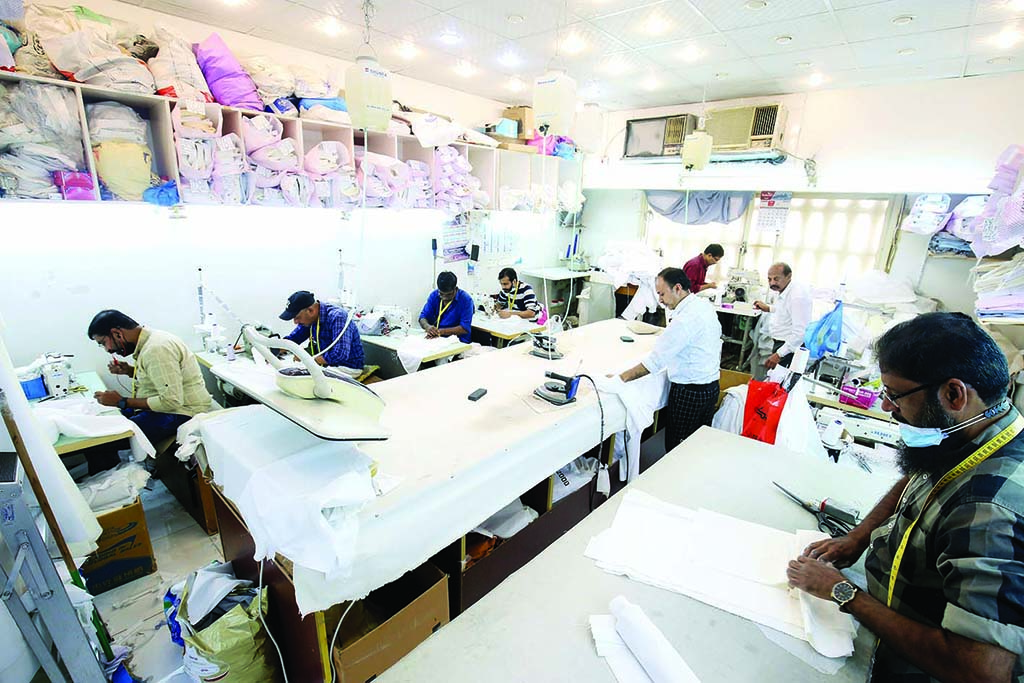By Faten Omar
KUWAIT: Many citizens are complaining they are unable to sew dishdashas for Eid due to the immense workload on tailors and long delivery times. Tailors told Kuwait Times the situation is a result of the repercussions of the coronavirus pandemic and the exodus of a large number of tailors, in addition to the impact of decisions on renewing the residencies of expats aged 60 and above without a degree, which has led to a labor shortage during the peak Ramadan season.
Kuwait Times visited several tailoring shops in Kuwait City to learn more about the 'tailor crisis' that has led to orders piling up for months. Dilip Kumar told Kuwait Times his tailoring shop lost more than KD 7,000 during the pandemic, blaming the 60+ expat decision and the many tailors who were stuck outside the country who lost their visas that were never renewed. "We had eight tailors, but now we only have two," he said.
Kumar said the current situation is causing them embarrassment in front of customers, who want their clothes to be made quickly, stressing that the earliest date for delivery is at least a month after Eid, because now it usually takes up to 15 days to make one dishdasha.
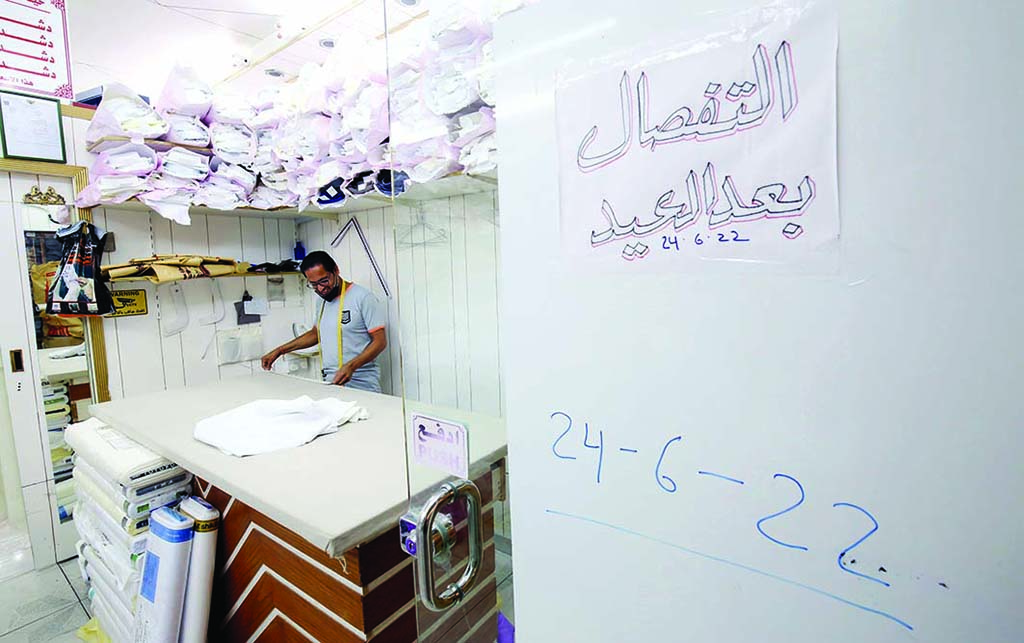
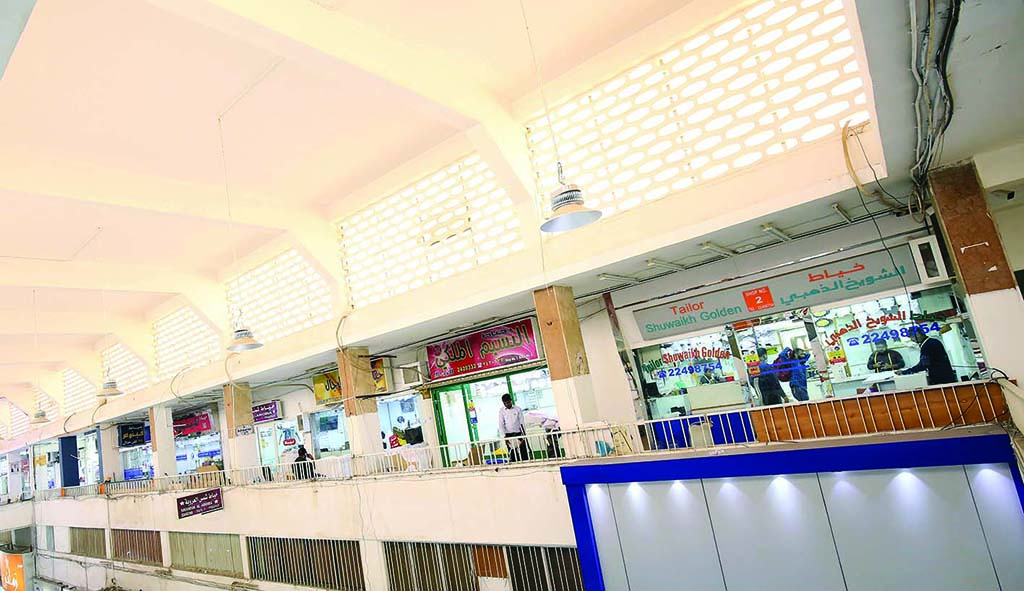
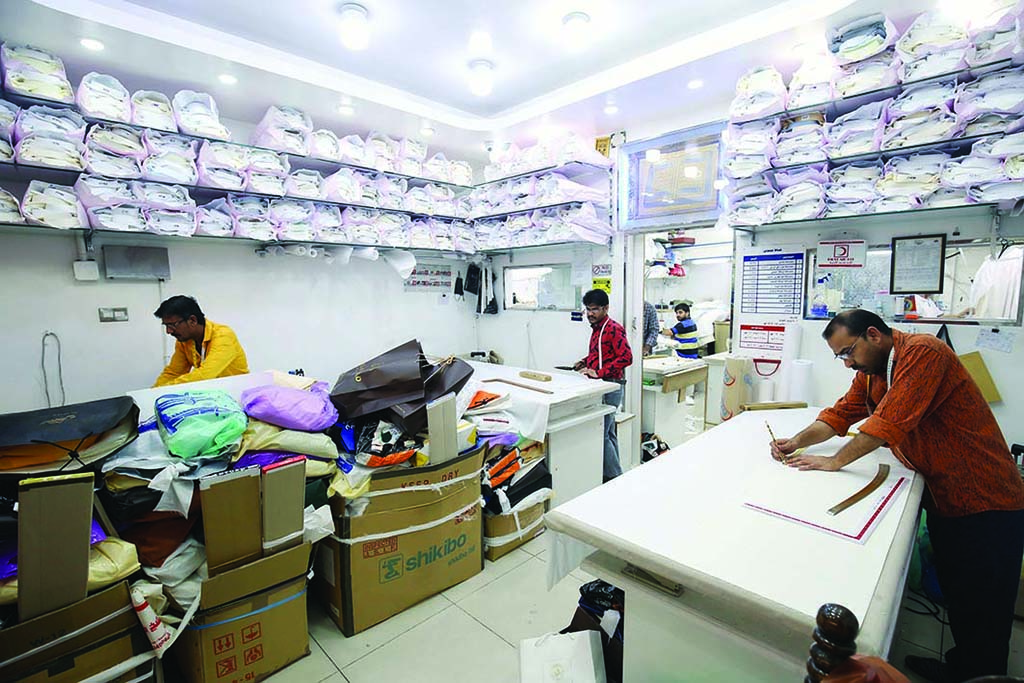
Busy period
Mohammad Waqas said the season of Ramadan and Eid is a busy period. "Every year we face the same thing, but this year the orders have piled up. We have almost thrice the number of orders from 2020 because people haven't made any new clothes for two years due to COVID-19," he said. He explained 15 tailors are working currently, after five tailors left recently because of the 60+ law, which has levied an annual fee of nearly KD 750, which many cannot afford. "We are fully booked until July. We make anywhere between 80 to 90 dishdashas daily, and the number increases in the run-up to Eid Al-Fitr. Tailoring charges start from KD 7 per dishdasha, and the fabric must be provided by the customer," Waqas said.
Redha told Kuwait Times that along with the 60+ law and COVID, work visas are not yet open to bring in new workers for his shop, pointing out that he owns another shop but it has been closed since the pandemic broke out. "I'm paying the rent for the closed shop for two years now, until I find new tailors to work on the machines inside. We are hoping for new laws in order to get new workers," he said. Redha noted workload is high until August, as around 50 tailors are working on Eid orders from 70 earlier. "People asking for more than one dishdasha, which has made taking new orders impossible."
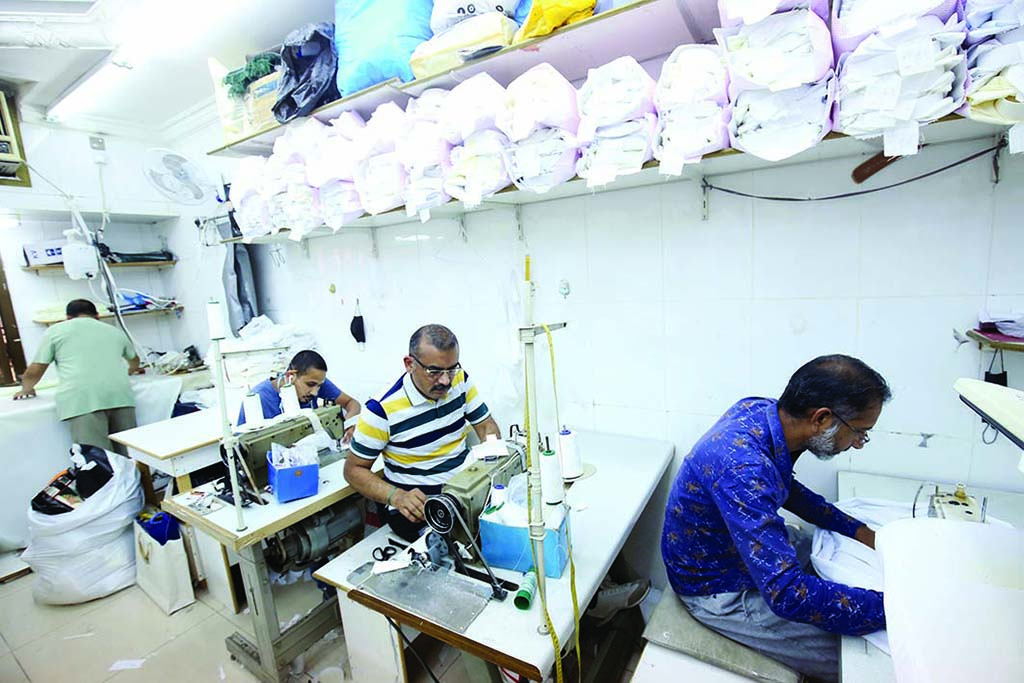
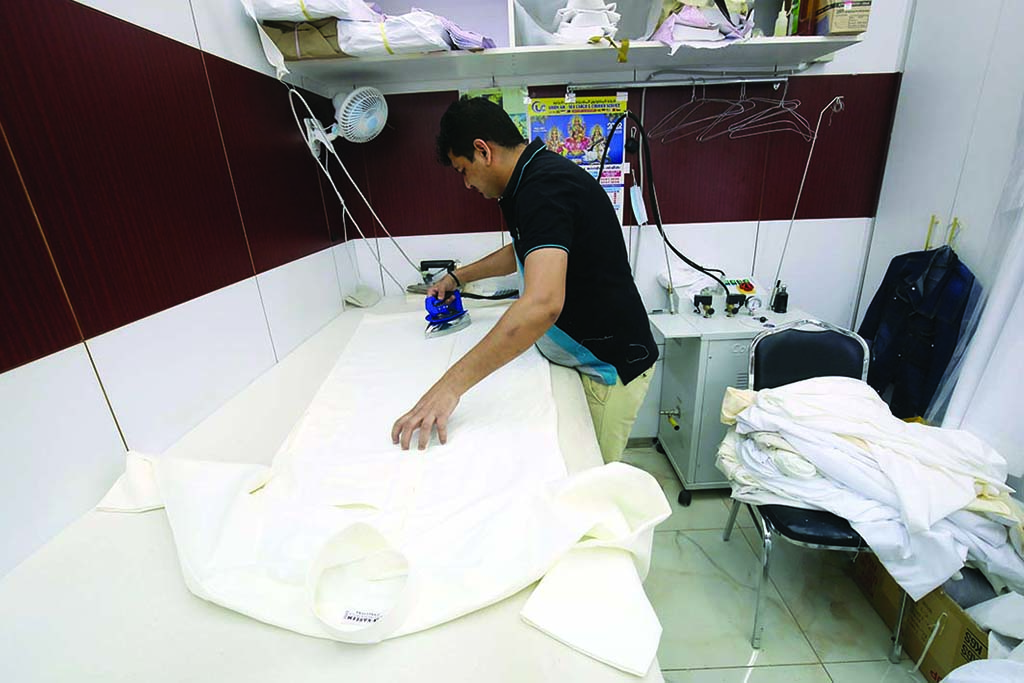
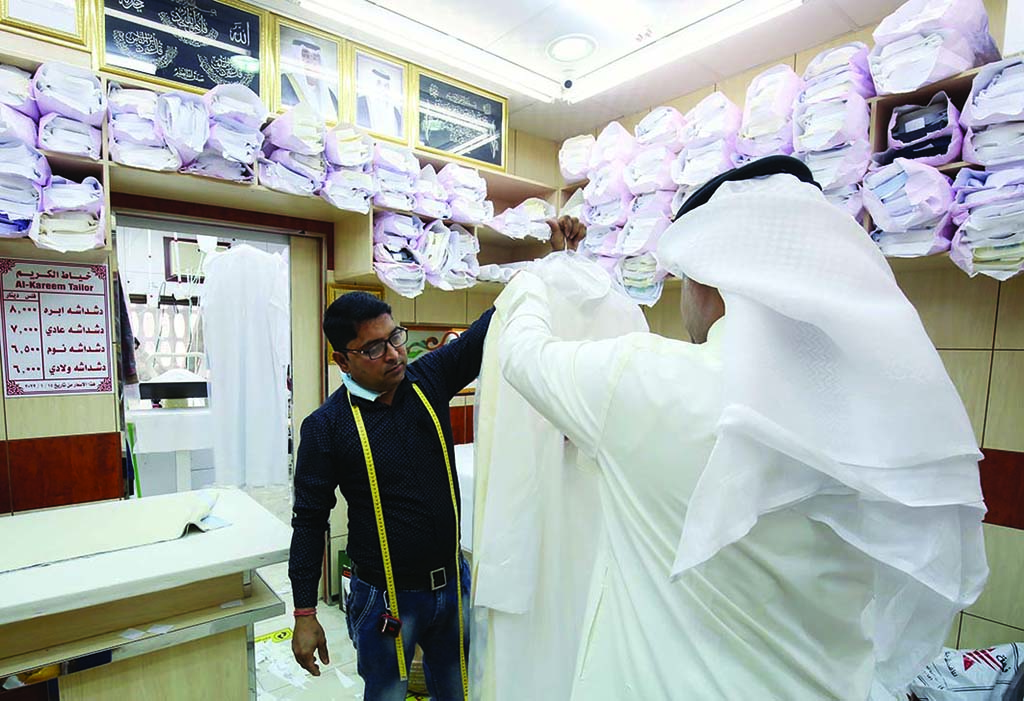
Stuck outside
Meanwhile, Noor said he lost six tailors after their iqamas expired due to being stuck in their home countries because of the coronavirus-linked lockdowns. Also, as many workers didn't get to see their families during the pandemic, they are now on vacation, which has added to the pressure. He said his shop stopped receiving new orders since February to complete what they already have.
Kuwaiti customer Ahmad Al-Saffar told Kuwait Times he did not expect such a situation. "Tailors are all full until after Eid - this is unbelievable! I thought I came early to stitch my Eid clothes, but was surprised at how many orders they already have," he exclaimed, adding he and his three children will now have to buy readymade dishdashas.
For Ali Ebrahim, who received his dishdasha, going early to the tailor shop was the best decision he made. "I sent the fabric in March to wear it in Ramadan, but did not expect tailors to be so busy," he told Kuwait Times. Ebrahim said that his dishdasha was supposed to be ready two weeks ago, but was just finished. "Now I will wear it for Ramadan and Eid, because many tailors will not take orders until after Eid. I intend to perform Eid prayer with this dishdasha."

